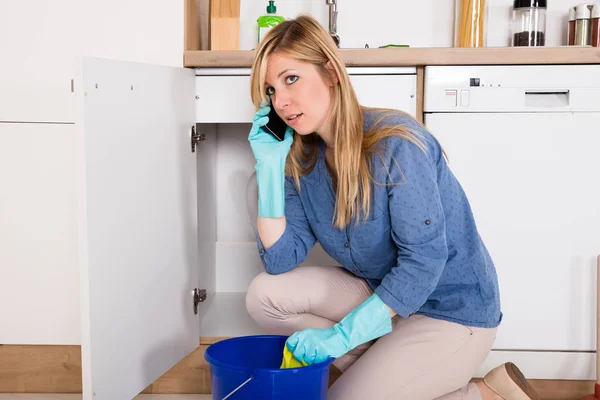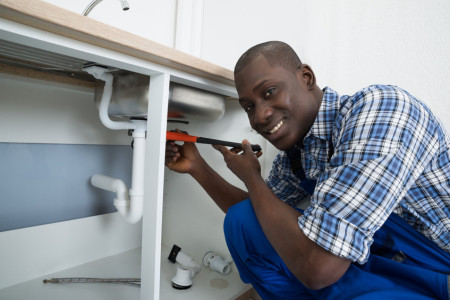Emergency Plumbing Fixes to Use Until Specialist Help Arrives
Emergency Plumbing Fixes to Use Until Specialist Help Arrives
Blog Article
What're your concepts about Plumbing Emergencies: Tips on What To Do Before?

Plumbing emergency situations can strike any time, creating stress and anxiety and possible damages to your home. Whether it's a ruptured pipe, a clogged drain, or a leaky tap, recognizing exactly how to handle the circumstance up until an expert plumbing gets here can conserve you from additional issues. This short article provides essential emergency situation pipes ideas to assist you reduce damage and reclaim control throughout a pipes crisis.
Turn Off the Water
The primary step in any type of plumbing emergency situation is to shut down the water system. For localized concerns, such as a dripping tap or bathroom, turn off the shutoff near the component. In the case of a major leak or burst pipeline, situate your home's primary water shut-off valve and turn it off instantly. Knowing the area of these shutoffs in advance can save valuable time throughout an emergency.
Shut Off Your Hot Water Heater
In specific emergencies, such as a ruptured pipe, it's important to turn off your hot water heater. This stops overheating or damages to the system when water stops streaming. Turn off the power supply to the hot water heater (electric or gas) and allow it cool off to avoid possible risks.
Momentarily Stop a Ruptured Pipe
A ruptured pipe can lead to considerable water damage in mins. To mitigate the concern:
Call an expert plumbing professional right away to address the issue completely.
Have an Emergency Situation Plumbing Set
Prepare a basic pipes emergency set to handle small issues properly. Your kit needs to include:
Having these devices available can make a substantial difference in your capability to take care of emergencies.
Unclog Drains Pipes Safely.
A stopped up drain can be an aggravating and untidy concern. Here's exactly how to tackle it:.
If these approaches do not function, prevent making use of excessive pressure, as it might worsen the obstruction.
Take Care Of Overflowing Toilets.
An overruning toilet can cause instant turmoil. Below's what you must do:.
Address Small Leaks with Short-term Fixes.
Small leaks can promptly come to be substantial troubles if left uncontrolled. Make use of these short-lived solutions till expert assistance shows up:.
While these repairs aren't long-term, they can help reduce water loss and damage.
Deal With Frozen Pipeline Thoroughly.
In colder climates, frozen pipelines are an usual emergency situation. If you believe an icy pipeline:.
Know When to Call a Specialist.
While quick fixes can assist briefly, certain pipes concerns need immediate professional focus. Call a plumbing professional if:.
Without delay calling a professional ensures the concern is fixed correctly and protects against additional complications.
Protect against Additional Damage.
Taking fast action to decrease damage can save you money and time in the long run. Below's exactly how:.
Verdict.
Plumbing emergency situations can be overwhelming, yet with the appropriate knowledge and devices, you can manage the circumstance effectively up until help shows up. By switching off the supply of water, resolving tiny leaks, and using momentary solutions, you can minimize damage and maintain your home safe. Bear in mind, these tips are short-term options; constantly consult a certified plumbing technician to take care of the origin of the problem. Preparation and quick reasoning are your ideal allies in any kind of pipes emergency.
8 Helpful Tips for Managing Plumbing Emergencies at Home
If your plumbing system hasn’t failed once, wait for it because almost everyone has a story to tell. Sometimes, it could be simple emergencies such as a leaking pipe, a blocked cistern, or even a big burst pipe. In situations like this, you need to have some handy tips to save you some money and from possible damages.
Take care of minor issues early.
Sometimes, you could have avoided an emergency by taking proactive measures while it was still early. Some major plumbing emergencies can be a result of an ignored minor issue. We recommend that you have items like plumbing tapes and other related items. A plumbing tape can allow you to manage minor leaks before the plumber arrives.
Cut off the water supply.
This tip is essential in almost any type of leakage problem. For problems like minor leakages in the toilet or kitchen, turn off the supply that takes water to the affected pipes. If the leakage is a major pipe, you must shut off the supply valve to the entire building. This will help you avoid flooding your home and neighbors if you share a flat.
Know your plumbing system
Folks typically move into a new apartment without understanding the water supply around the building. This can prove disastrous if a water emergency arises and the plumber is far away. The previous tip will prove useless if you don’t practice this one. More importantly, know where your water shut-off valve is located – you’ll need that knowledge to prevent potential home floods.
Have some common handy tools
There are lots of plumbing emergencies that you can handle without hiring a plumber. That’s why you must keep some tools available always. Some tools that you can use to fix simple plumbing emergencies easily include plumbing tapes, screwdrivers, thread seal tapes, plungers, pliers, tape measures, and rubber gloves.
Insulate your pipes from cold
You’ll save yourself from many plumbing expenses if you protect your water pipes from the cold. This is because of the harmful effects that cold weather can have on your pipes. During winter, your pipes can burst from being overly expected to freezing temperatures. So, make sure insulators are there to keep the pipes working correctly.
Avoid practices that will clog your toilet.
Many people indulge in practices that can damage the plumbing system of the entire building. One of these is when they use their toilet to dispose-off garbage. They flush all kinds of things, such as paper towels, bandages, hairs, female sanitary products, etc., down the toilet. This will block your toilet in the long run, incurring unnecessary expenditures. Dump such waste in the trash instead.
Check your dials regularly.
Sometimes, there could be leakages in your home without noticing them in time. So, constantly monitor your water meter dial. If the dial is reading when there is nobody using water, this is an indicator that there is leaking. Check for leaks immediately. Call a plumber as soon as possible if you can’t find any.
https://www.constructionplacements.com/8-helpful-tips-for-managing-plumbing-emergencies-at-home/

Hopefully you enjoyed our excerpt on Plumbing Emergencies: Tips on What To Do Before. Thanks a lot for spending some time to read our blog post. Are you aware of anybody else who is very much interested in Expert Tips for Emergency Plumbing Repairs? Take a moment to share it. I praise you for being here. Come back soon.
Visit My Web Page Report this page